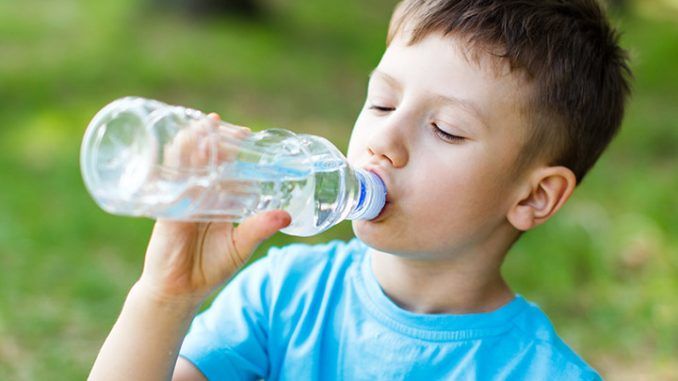
The World Health Organisation (WHO) has announced a health review into the potential risks of plastic in drinking water after researchers found that more than 90% of bottled water brands contained tiny pieces of plastic.
According to the new study, the most common type of plastic fragment found was polypropylene, which is the same type of plastic used to make bottle caps.

BYPASS THE CENSORS
Sign up to get unfiltered news delivered straight to your inbox.
You can unsubscribe any time. By subscribing you agree to our Terms of Use
The Mail Online reports: Researchers examined 11 brands of water bought in nine countries, and their findings call into question the manufacturers’ claims that bottled water is healthier than tap water.
The brands tested include the world’s dominant players – Nestle Pure Life, Aquafina, Dasani, Evian, San Pellegrino and Gerolsteiner – as well as major brands across Asia, Africa, Europe and the Americas.
The researchers found that 93 per cent of the water in the bottles contained some sort of microplastic, including polypropylene, polystyrene, nylon and polyethylene terephthalate (PET).
Microplastics are the result of the breakdown of the plastic waste that makes its way into landfills and oceans. Anything smaller than 5mm (5,000 microns) is considered microplastic.
The study found that on average there were 10.4 particles of plastic per litre that were 100 microns (0.10mm) or larger. This is double the level of microplastics in the tap water tested from more than a dozen countries across five continents in 2017.
It’s unclear what the effect of microplastics is on human health, and no previous work has established a maximum safe level of consumption.
the European Food Safety Authority suggests most microplastics will be excreted by the body. But the United Nations’ Food and Agriculture Organisation has raised concerns about the possibility some particles could be small enough to pass into the bloodstream and organs.
It’s not clear how the plastic is getting into the bottled water – whether it’s the water source itself or the manufacturing and bottling process. The research was conducted on behalf of Orb Media, a US-based non-profit journalism organisation.
Professor Sherri Mason, who carried out the laboratory work at the State University of New York, said: ‘Even the simple act of opening the cap could cause plastic to be chipping off the cap.’ She said people can choose to not buy water in a plastic bottle, and to carry a refillable bottle instead.
But for other products, there is no choice. The majority of products on grocery and retail store shelves are contained in plastic.
Prof Mason added: ‘It’s portable, it’s lightweight, it’s convenient, it’s cheap – that just makes it easy, it’s so difficult to get people to care about things they can’t see.’
‘We see it in bottle after bottle and brand after brand. It is not about pointing fingers at particular brands – it is really showing that this is everywhere.’
On the health implications, she said: ‘Some of these particles are so small they can make their way across the gastrointestinal tract and be carried around the body. We don’t know the implications of what that means on various organs and tissues.’
Niamh Harris
Latest posts by Niamh Harris (see all)
- Without Defining ‘Pandemic’ WHO Wants Sweeping Global Power Over Pandemic Policy - April 16, 2024
- Pfizer Is Seeking FDA Approval For RSV Vaccine For Young Adults - April 16, 2024
- Zelensky Pleads With The West To Treat Ukraine Like Israel - April 16, 2024


All plastic packaging is toxic and contains hormone receptors that mimic and disrupt the Natural Human Genome. Avoidance is a health care priority.
Well, duh.
Back before recycling and being “green” was cool, we used to buy drinks in these things called “glass bottles,” and you returned your empties to the store. Sure, they weighed a little more than plastic bottles, but they could be recycled almost endlessly.